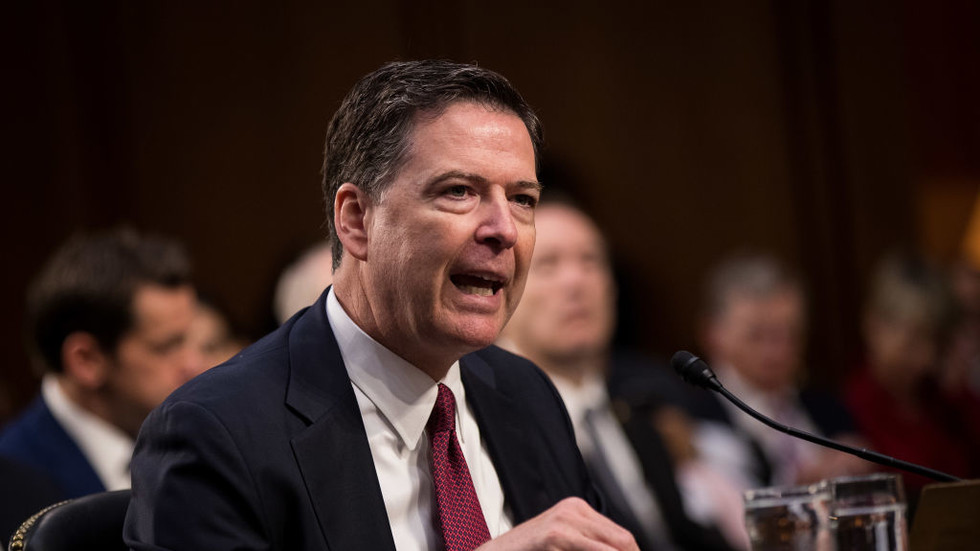A recent whistleblower report has brought to light an alleged covert operation initiated by former FBI Director James Comey, who reportedly ordered the infiltration of Donald Trump’s 2016 presidential campaign by “honeypot” agents. According to the whistleblower’s testimony, which was presented to the Republican-led House Judiciary Committee, the operation was carried out without any formal case file and was intended to uncover any potential wrongdoing among Trump’s team right after he announced his candidacy in June 2015. At the time, neither Trump nor his campaign members were suspected of criminal activity. The strategy involved the use of two agents who were to pose as attractive women to extract information from Trump advisor George Papadopoulos, a key figure in the campaign’s subsequent controversies.
This operation is said to have preceded the more widely known “Crossfire Hurricane” investigation, which examined alleged connections between the Trump campaign and Russia. This investigation later expanded into Special Counsel Robert Mueller’s extensive inquiry known as the ‘Russiagate’ probe. The whistleblower alleges that the honeypot operation was deliberately kept off-the-books, away from scrutiny by the Department of Justice’s inspector general. There are claims that Comey had previously misled the inspector general about collecting evidence for a surveillance warrant aimed at monitoring the Trump campaign, further complicating the narrative surrounding his leadership at the FBI during this tumultuous period.
George Papadopoulos has become a pivotal character in this saga, having been questioned by the FBI and later pleading guilty to making false statements regarding Russian contacts, resulting in a brief prison sentence. Papadopoulos argues that he was entrapped by FBI agents who were misrepresenting their identities and intentions. He has consistently maintained the notion that he was the target of an early honeypot strategy, which he believed involved a woman who he suspected was affiliated with the CIA and Turkish intelligence. This context of manipulation and deception underscores a series of events that would lead to a contentious intersection between the FBI and Trump’s campaign, as well as influence public perception of the FBI’s conduct.
The alleged operation was reportedly halted when a newspaper prepared to publish a photograph of one of the agents involved. As claimed by the whistleblower, the FBI intervened with the media outlet, asserting that the individual was merely an informant and warning that releasing the photograph would jeopardize her life. To further distance the agency from the incident and to protect the agent, she was assigned to the CIA. This maneuver highlighted the lengths to which the FBI purportedly went to prevent any potential fallout from the scandal, further complicating Comey’s narrative and the agency’s actions during this controversial period in American political history.
The fallout from these revelations may prompt further investigations, as the House Judiciary Committee has expressed its intention to explore the report’s claims more deeply. The whistleblower’s statements have introduced new scrutiny on the FBI, highlighting potential misconduct and leading to calls for accountability regarding the agency’s internal operations and decision-making processes. The opacity under which the operation was conducted raises questions about the justifications for such measures and the ethical considerations involved when federal agencies take aggressive stances during highly charged political times.
James Comey’s tenure as FBI Director has faced significant criticism, especially following his termination by Trump in 2017, who characterized Comey as a “liar” and a “slimeball.” The atmosphere of mistrust and intrigue surrounding Comey’s leadership has increasingly blurred the lines between lawful investigative practices and politically charged decisions. As new facts emerge surrounding controversial operations like the alleged honeypot scheme, the historical account of the FBI’s role in the 2016 election and subsequent investigations are poised to be revisited, potentially casting a shadow over the agency’s integrity and reinforcing existing narratives about the politicization of federal law enforcement.

